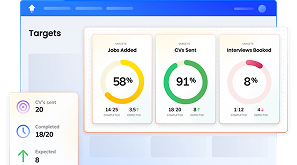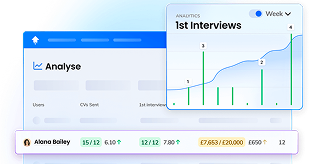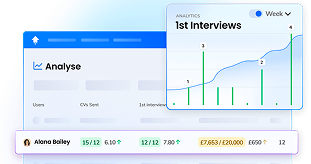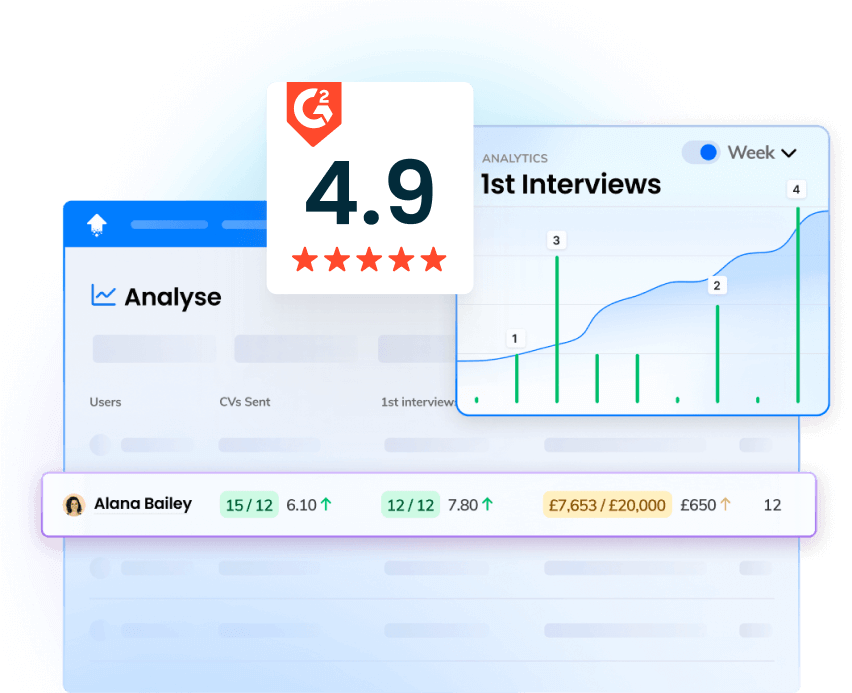It’s no secret that the majority of companies struggle to achieve the level of CRM engagement they desire. It’s not as simple as paying for your licences, giving your team their logins and suddenly you achieve the rampant growth many CRM providers promise – we all wish it was, but sadly that’s not how this story plays out.
Once you have established and integrated a CRM into your company's working practices, the next challenge lies in getting your team to engage effectively with it.
Why does this matter? Because in order to help you drive performance, improve efficiency, and increase productivity overall, you need your CRM to have all the relevant data pooled into it. Your CRM can't show you what's working well and what's not if doesn't have much to analyse in the first place.
If you’re looking for ways to improve data accuracy, increase usage or engage your staff around key CRM activities, read on for 4 ways to help increase CRM engagement.
Celebrate the successes, small and large

One key benefit of CRM systems is the amount of data they provide you with. How much you’ve sold this quarter, how many deals have been closed, maybe even who has logged the most activity on the system.
You can use this information to show your team that your CRM benefits them in ways other than just logging data in a more organised fashion – it can help you to recognise their efforts and successes too!
Make the process fun and engaging
If you’ve ever been asked by a dietician or personal trainer to write down everything you eat, you’ll know it can be a boring task. Because of this you’ll sometimes forget to log your lunch, diminishing the returns you’re supposed to be getting from using it.
Apps like MyFitnessPal alleviate some of this pain by introducing engaging and exciting stimulus to the process. News feed updates for your friends to see, visible macronutrient goals for you to aim for and interesting pieces of information you wouldn’t otherwise know such as what your weight would be in 3 months if you ate like this every day.
Such apps exist for CRM systems too. There’s a whole host of them out there (we’re one of them) that provide functionality for creating some fun and engagement, including:
- Real-time notifications whenever a key event happens that you want to recognise publicly.
- Automated competitions that staff can see at any time.
- TV slideshows for publicly visualising key information.
- Analytics tools for uncovering information you may not otherwise discover.

Ignore any other data sources
If you’ve had children or trained a dog, you’ll be able to sympathise with this one, even if it’s a little controversial.
The best way to train an animal is to reinforce positive behaviour but sometimes you have to discourage the behaviour you don’t want to see. How you do that is, of course, entirely up to you, but clients of ours have flat out refused data submitted to managers in any way unless it’s on the CRM system.
The money might be in the bank, but it may as well not be unless it’s on the CRM! The salesperson or recruitment consultant doesn’t receive their commission until it’s logged correctly and if anything’s going to make them follow a process, it’s money.
You might not be this strict with your staff usually (if you are, this’ll be a cinch) but think of it as a carrot and stick scenario – recognition and rewards for those who do, coal at Christmas for those who don’t.
Focus on metrics other than revenue

You might be asking “why would I NOT put all our focus into revenue?”.
Quite simply, you encourage a free-for-all. There’s a reason why most metric-driven workplaces have a process that staff must adhere to – it’s scalable and it’s proven to work. Good luck getting new staff from varying backgrounds to become profitable quickly when the ethos is “make money and we’re happy”.
We’re not proposing you focus on how many clicks on the CRM someone has done or even how many emails they’ve sent. Although the latter is definitely a revenue-generating activity, it can be abused in isolation.
Your best bet is to define your pipeline and then start measuring the numbers. If you have a process of say:
- Make a call
- Book a meeting
- Send a proposal
- Close the deal
Then you should be putting some attention on all four, not just how much money is being brought in. Equally focusing on one, as we mentioned a few seconds ago, can lead to abuse. If you’re only focusing on how many calls are being made, salespeople can just hit the phones and make weak calls.
However, if you focus on all four, there’s no escaping the process.
CRMs are an invaluable tool for increasing productivity, gaining analytical insights, automating the mundanity of reporting, and empowering managers to effectively lead their teams to where they need to go. But like any tool, it will only work well if you use it well.
Increasing engagement with CRM is crucial, and hopefully you are now equipped with a few tips on how to do just that. Do you have any other creative solutions for increasing CRM engagement? Let us know.
OneUp Sales - building high performance sales teams by increasing productivity, retaining talent, and empowering management across your organisation.
Learn more about our platform and explore what it could do for you.
















